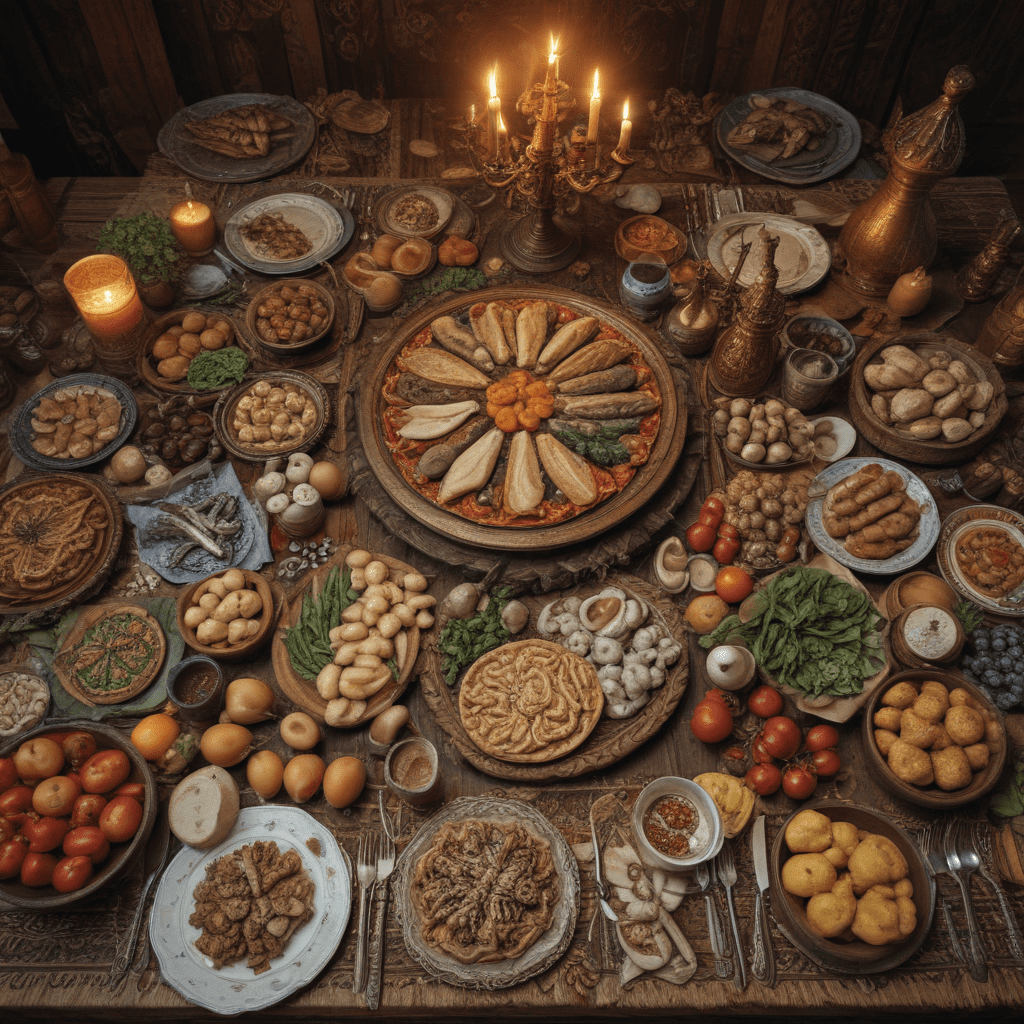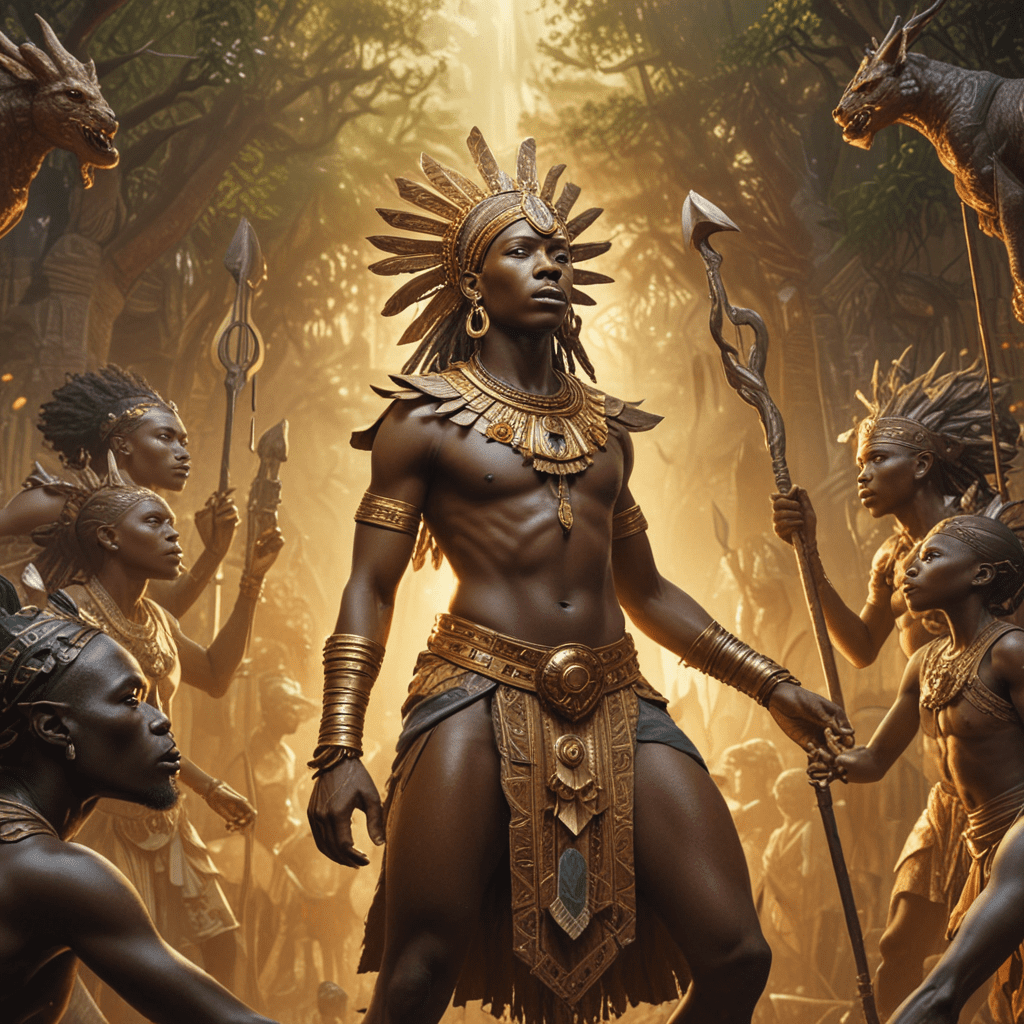Introduction
Slavic mythology, an intriguing tapestry of beliefs, legends, and traditions, has profoundly influenced the culinary landscape of Eastern Europe. This article delves into the captivating connection between Slavic mythology and traditional cuisine, exploring how ancient beliefs and rituals have shaped the way food is prepared, consumed, and celebrated in Slavic cultures.
Origins and Significance of Slavic Mythology
Slavic mythology emerged centuries ago, intertwined with the history and collective imagination of Slavic peoples. It encompasses a vast pantheon of deities, spirits, and mythical creatures, each possessing distinct characteristics and playing a pivotal role in the lives of the ancient Slavs. These mythological figures embodied natural forces, influenced human destinies, and guided the course of everyday life.
Beliefs and Rituals Related to Food
Food played a central role in Slavic mythology and associated rituals. The Slavs believed that the preparation and consumption of food were sacred acts, deeply connected to the divine and the natural world. Certain dishes, ingredients, and rituals were believed to possess supernatural powers, capable of bringing good fortune, warding off evil spirits, or ensuring a bountiful harvest.
Influence on Traditional Slavic Dishes
The influence of Slavic mythology on traditional Slavic cuisine is evident in the choice of ingredients, cooking methods, and symbolic meanings associated with various dishes. Many traditional Slavic dishes feature ingredients such as cabbage, buckwheat, and mushrooms, which were considered sacred or associated with particular deities. Cooking methods like stewing and baking over an open fire reflect ancient cooking practices and evoke a sense of connection to the past.
The Role of Natural Deities in Food Lore
Slavic mythology is replete with natural deities who were believed to govern various aspects of life, including food and agriculture. The goddess Mokosh, for instance, was associated with fertility and the harvest, while Veles was the protector of livestock and wealth. These deities played a central role in food lore, influencing the timing of planting and harvesting, the preparation of feasts, and the rituals performed to ensure a successful crop yield.
Animal Symbolism and Culinary Customs
Slavic mythology is rich in animal symbolism, with various creatures representing different aspects of life and nature. The wolf, for instance, was revered as a symbol of strength and courage, while the bear was associated with wisdom and healing. These animal symbols often found their way into culinary customs and traditions. Slavic dishes might feature ingredients or motifs inspired by these animals, such as wolf-shaped dumplings or honey-based desserts symbolizing the wisdom of the bear.
The Importance of Festivals and Holidays
Festivals and holidays played a crucial role in Slavic culture, serving as occasions to celebrate the changing seasons, honor the gods, and engage in communal feasting. Traditional Slavic cuisine is deeply intertwined with these festivals. Christmas Eve, for example, is celebrated with a special meal known as "Kutia," a porridge made with wheat, honey, and poppy seeds. This dish symbolizes abundance and prosperity for the coming year.
Preservation of Ancient Practices in Modern Cuisine
Despite the passage of time, many ancient Slavic culinary practices have been preserved in modern cuisine. Traditional dishes continue to be prepared in rural areas, often using locally sourced ingredients and following centuries-old recipes. These practices serve as a living testament to the enduring legacy of Slavic mythology and its influence on the region's food culture.
Contemporary Interpretations of Slavic Food Traditions
In recent years, there has been a growing interest in reinterpreting Slavic food traditions through a contemporary lens. Chefs and food enthusiasts are exploring innovative ways to incorporate ancient ingredients and culinary techniques into modern dishes. This trend reflects a desire to connect with the past while creating new and exciting culinary experiences that honor the rich heritage of Slavic culture.
Conclusion: The Enduring Legacy of Slavic Mythology
Slavic mythology has left an enduring legacy on the traditional cuisine of Eastern Europe. Ancient beliefs, rituals, and symbols have shaped the ingredients, cooking methods, and symbolic meanings associated with various dishes. Festivals and holidays continue to play an important role in culinary customs, while contemporary interpretations are keeping Slavic food traditions alive in new and exciting ways. The influence of Slavic mythology on cuisine serves as a testament to the enduring power of cultural traditions and their ability to shape the way we eat and celebrate.
FAQ
Q: What are some popular Slavic dishes influenced by mythology?
A: Popular Slavic dishes influenced by mythology include Borscht, a beetroot soup associated with fertility and good luck, and Piroshki, filled pastries that symbolize prosperity and abundance.
Q: How do Slavic festivals and holidays influence cuisine?
A: Slavic festivals and holidays are celebrated with specific culinary traditions. For example, Easter is celebrated with painted eggs and a traditional bread called "Paska," while Christmas Eve is marked by a special meal called "Kutia."
Q: How is Slavic mythology preserved in modern cuisine?
A: Slavic mythology is preserved in modern cuisine through the continued use of traditional ingredients, cooking methods, and symbolic meanings in dishes. Many rural communities still prepare traditional Slavic dishes, while chefs and food enthusiasts are exploring innovative ways to reinterpret these traditions for contemporary tastes.



